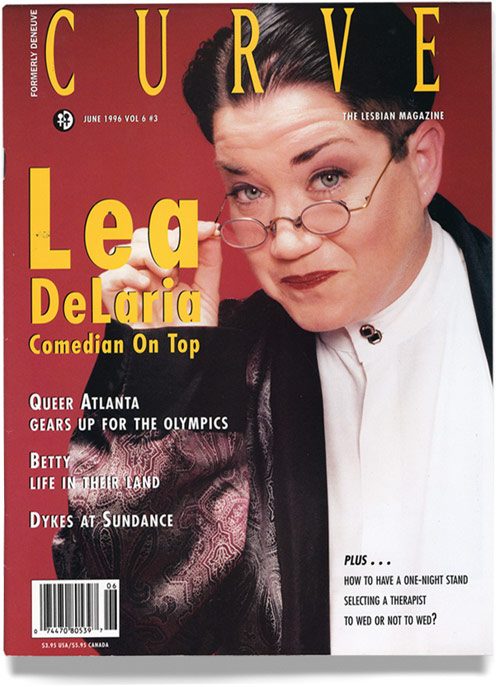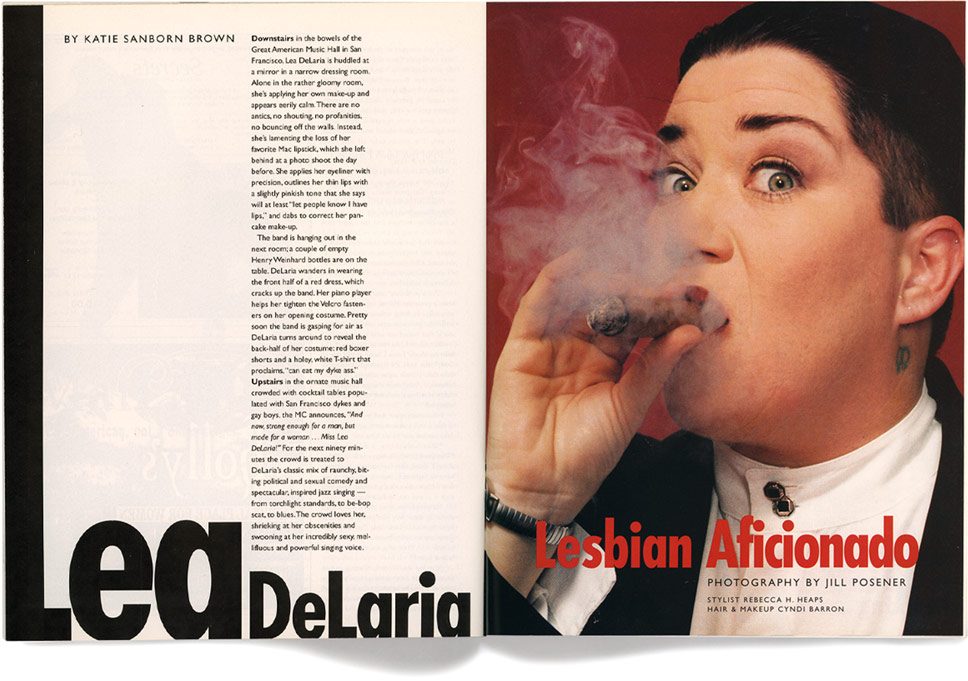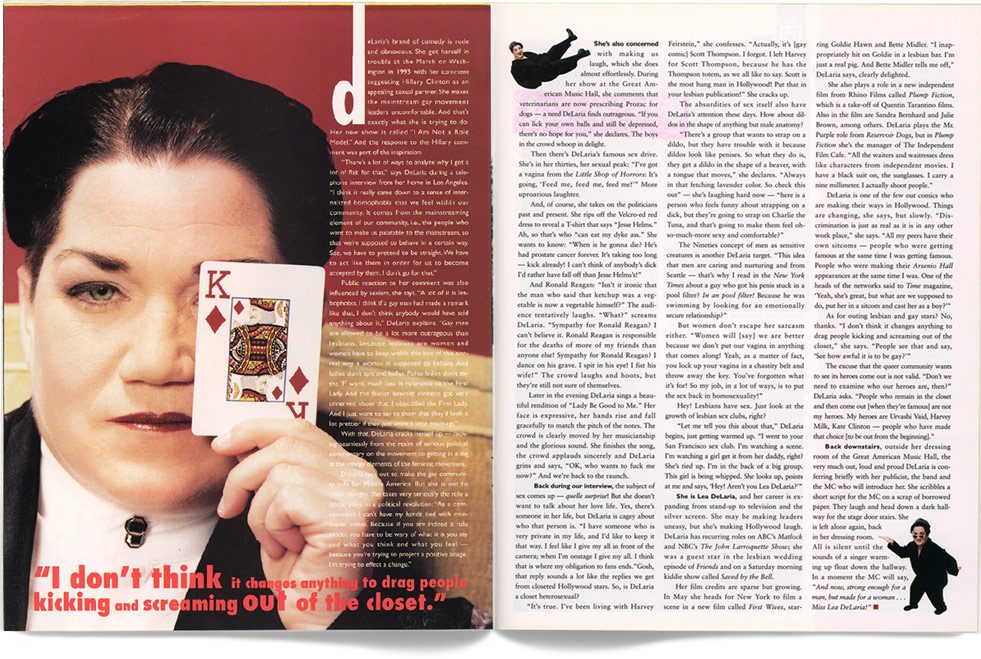Question: What does a lesbian bring on a second date? Answer: A U-Haul. Most Curve readers would remember the first time they heard that joke, and it was probably around the same time they heard of stand-up comic Lea DeLaria — because Lea wrote that joke and regularly performed it in her comedy routines from 1989 onwards all around the Bay Area and beyond.

And we laughed at it because it was funny — and (kind of) true!
Lea started performing stand-up in the 1980s in San Francisco’s Mission District and was making a name for herself among lesbians with her sexually and politically-charged, unapologetic stand-up comedy. From the get-go she grabbed the mic and held space for butches. “I’m a big butch dyke. That’s who I am.”
Lea is not only a master of the lesbian one-liner. She is a brilliant social observer, especially when it comes to butch invisibility. “Name five butch lesbians, quick! Just off the top of your head,” she once said, before pausing: “I will wait.”
Arguably the first entertainer to champion Butch Pride, Lea was also the first openly gay comic to appear on American television. Her 1993 appearance on The Arsenio Hall Show predates Ellen DeGeneres’ coming out by four years. And Lea didn’t pull any punches, either. She bluntly told the late-night talk-show audience, “Hello everybody, my name is Lea DeLaria, and it’s great to be here, because it’s the 1990s! It’s hip to be queer! I’m a big dyke.”
In December 1993, Lea hosted Comedy Central’s Out There, the first all-gay stand-up comedy special — 18 months after Curve had already announced Lea as the next big thing in comedy.
Entertainment and TV writer Wendy Engelberg wrote one of the magazine’s first articles on Lea (in the July/August 1992 issue of Deneuve), and pegged her even then as “the original bad girl of lesbian comedy.” At the time, Lea was putting the finishing touches on her album Bull Dyke in a China Shop, the title of which describes her well. Her outspokenness became her trademark, fueled by her involvement in ACT-UP and the AIDS crisis, and Lea was not afraid to use her voice and use it loudly, speaking on the subject of LGBTQ rights — and singing on several modern jazz albums.
Lea went from performing for queer audiences in underground comedy clubs to mainstream success. Entertainment Weekly proclaimed “a star is born with Lea DeLaria” in their review of her “showstopping” turn as Hildy Esterhazy in the 1998 Broadway revival of On the Town. She had a major role in the 2000 Broadway revival of The Rocky Horror Show, and made appearances in numerous TV shows and films, from Friends to The First Wives Club. But it was her portrayal of tough-as-nails but innately tender inmate “Big Boo” on Orange Is the New Black that brought her into 100 million Netflix subscribers’ homes.
“What’s interesting to me about Lea is that she’s remained true to herself and has managed to carve out a career just from being who she is — and that to me is really remarkable,” says Engelberg, who counts Lea as one of her oldest friends. “Being a female comic is hard, and was at that time. But add to that being an out butch lesbian — and that it made it even harder. But she broke through the ceiling.”
And other queer comedians felt encouraged enough to follow. “Sam Jay, Punkie Johnson, Chaunté Wayans — these are just some of the butch comics who are out there now and successful. It’s an exciting time,” says Engelberg. “And Lea helped pave the way, there’s no question.”

